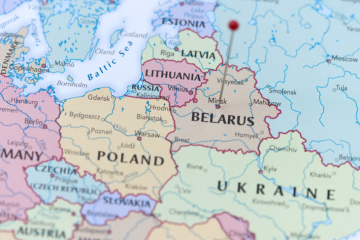
Wrong Analytical Lenses Undermine the West’s Belarus Policy
Belarus, a country of 9.2 million people in Eastern Europe, is portrayed in Western media and diplomatic circles in a simplistic and unnuanced way: in addition to its decades-long description as Europe’s last dictatorship, it is now also perceived as a Russian satellite state, springboard for hybrid threats, including illegal migration, to the EU, and a co-aggressor in Moscow’s war on Ukraine. Such perceptions particularly dominate the discourses and shape the policies towards Belarus of its immediate neighbours among EU and NATO member states – Poland, Lithuania, and Latvia. Indeed, tensions on Belarus’s borders with these states have risen sharply in recent years. Since 2020, Warsaw, Vilnius, and Riga have spearheaded the introduction of harsh Western sanctions and border closures, …

Conceptual Framework: Democratic Peace Theory from the perspective of the English School Theory of International Relations
One of the most persuasive international relations theories is Democratic Peace Theory (DPT). In this blog, my question here is whether DPT can be analysed from the perspective of the “English School” of International Relations. I argue that there is a strong conceptual basis from which to do so.









